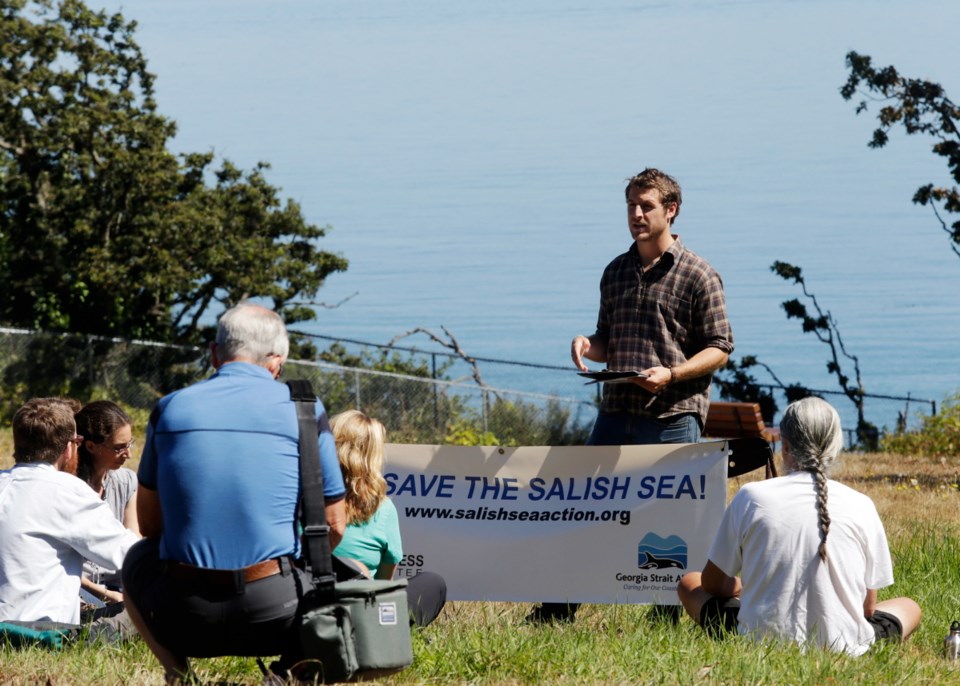The cumulative effect of coal and oil export projects proposed on the U.S and Canadian sides of the Salish Sea will turn the area into a carbon superhighway, say environmental groups on both sides of the border.
Proposals such as doubling the size of the Kinder Morgan pipeline, which would equate to 400 extra tankers a year, as well as the proposed Fraser Surrey Docks coal terminal expansion and the Gateway Pacific Terminal coal export facility, planned for Cherry Point, Wash., should be considered together rather than in isolation, said members of the Wilderness Committee and Georgia Strait Alliance, who held a town hall meeting at Arbutus Cove Wednesday.
The meeting, which had scenic Haro Strait as a backdrop, was held simultaneously with a town-hall meeting on San Juan Island, organized by the Friends of the San Juans, and both groups then shared their concerns through a teleconference
“The idea is to highlight the interconnection between different jurisdictions in the Salish Sea,” said Torrance Coste, Wilderness Committee Vancouver Island campaigner, as the Victoria group agreed to write to Washington state’s governor while the U.S group plans to write to the B.C government.
If all the oil and coal export proposals go ahead, the Salish Sea will be transformed into a global carbon corridor, said Eoin Madden, Wilderness Committee climate campaigner.
The only area exceeding the amount of carbon going through the Salish Sea would be the Strait of Hormuz in Iran, he said.
“Green initiatives undertaken at the municipal or regional level will essentially be nullified by the massive increase in fossil fuels shipped through the Salish Sea.”
The prospect of an oil spill is not just devastating for the environment, but would also destroy the coastal economy, said Alexandra Woodsworth of Georgia Strait Alliance.
Despite government promises that cleanup would be world class, the response capability does not exist in B.C and, world-wide, no more than 25 per cent of oil has been recovered after a spill, Woodsworth said.
The campaign to save the Salish Sea will continue on both sides of the border, said speakers, who suggested that, eventually, blockades might be needed in areas such as Second Narrows and the Douglas Channel.
Wilderness Committee video for Save the Salish Sea campaign



